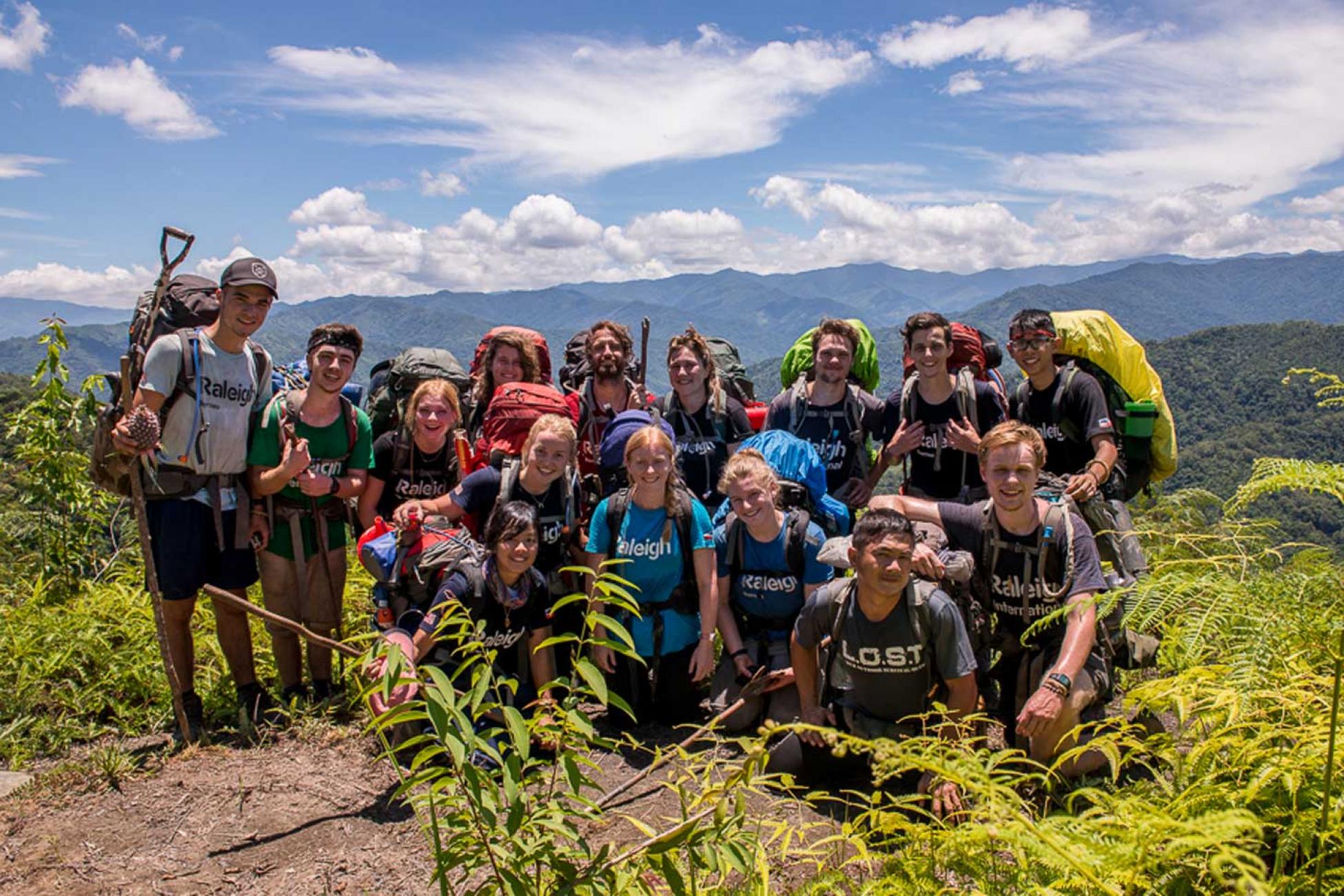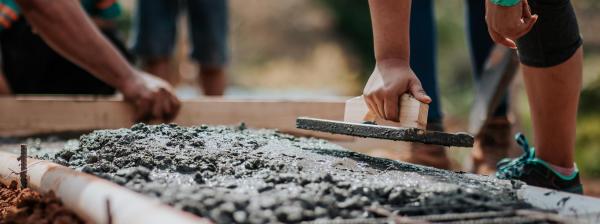We braced ourselves for another tough day—a seven-hour hike, mostly uphill, to our next camp. It was the sixth day of our adventure trek through the Crocker Range in Borneo, a jungle rainforest which is home to incredible animals and plants, including the largest flower in the world! Today’s challenge would be followed by 10 more days of strenuous trekking—just like this one.
After a long uphill climb through dense foliage, with only occasional rays of sunlight streaming through, we reached a clearing where we could see the mountains around us. Our leader for the day decided that this would the perfect spot for a break. We flung our heavy rucksacks to the ground, relieved to sit and share our most prized possession—beef jerky! Azmie, another volunteer from Malaysia, let out a mighty “Bagus!”, meaning “amazing!” in Malay. From then on, "Bagus!" was a daily exclamation.
I was volunteering on a Raleigh International expedition. This part of the trip was the leadership trek phase, which meant spending more than two weeks with an international group of young volunteers, testing ourselves both physically and mentally. Every day a different volunteer got to take their turn to lead the group. We each took on the responsibility of getting our team to the next camp, dividing jobs equally amongst the group and boosting morale when jungle life became too much for the group. Every day I accumulated new experiences that taught me more about good leadership. Here’s what I learned:
1. Teamwork is key
Trekking through the unfamiliar jungle, far away from civilization, means that teamwork is crucial. You have to look out for each other. Even the leader needs to lean on others in the group at times. When we reached our campsite after a tough day, there were a million tasks to do: getting to the nearest water site to gather precious water; tying up a tarp for shelter; making lunch; finding dry twigs to make a fire; digging our long drop toilet in the forest. Without teamwork we’d have probably had no hot dinners or card games at night because everyone would have been too exhausted!
As the leader, you realize that you’ve got to put the needs of the team first. This way, things run smoothly and tasks are done quickly and easily.
2. A leader isn’t there to give orders
At high school, I thought the stereotype of a leader was someone of high rank, who is strict and scolds people if they do anything wrong. I was afraid of leaders and I dreaded being one.
With Raleigh, I realized a leader is someone you respect and even look up to. A leader isn’t someone you fear, but someone who coordinates things and makes the whole group flow. A good leader doesn’t order people around—in fact, people gladly do things for a leader when they know that they have good intentions for the team.
3. Having down time is okay
As an introvert, I really value friendship but I also need time alone for myself. So being a leader and surrounding myself with a whole team all day long was going to be a challenge.
I talked to my volunteer manager about this and she told me that having down time is A-okay. By giving myself an hour to lie in the hammock and write my diary, I felt fully re-energized. I was more focused and could easily chip in to problem-solving tasks afterwards. I learned that taking down time away from the group doesn’t mean that you’re shying away. It just means that you understand yourself and what you need to be effective for the rest of the day.
4. Listen and understand different perspectives
When discussions heat up during stressful situations, the leader has to resolve things. You can do that by looking at your team’s body language or listening to how they’re trying to solve a particular problem. Paying attention to how different people think will really help you to lead them.
It might be that somebody in the team is out of their comfort zone and feels frustrated at the new environment, so an argument starts brewing. The best thing to do as a leader is to hear what everyone has to say, make sure you have all the information you need, weigh the facts on both sides, and use that to make wise, informed suggestions. Leading a group means listening to each team member, tolerating and understanding one another, and putting yourself in their shoes.
5. Be prepared to get out of your comfort zone
Initially, leading a team of 13 people from lots of different countries scared me! Taking control of a group of peers was totally out of my comfort zone and I was really intimidated.
Every time I had something difficult to do I would take 20 seconds for courage first. Whenever I needed to do something hard, like asking someone in the group to do their camp duties, or waking everyone from their nap to attend a jungle survival session, I would block out all my unhelpful thoughts for just 20 seconds. I would summon the courage to do what it took to be a leader in that particular situation. In the end, I realized that being a leader isn’t so scary after all.
Now I know that anybody can be a leader. You just have to have confidence in your decisions, take courage from your group and use the new experiences you have each day to learn about yourself. Bagus!
Raleigh International, a sustainable development charity, no longer works in Borneo but offers programmes in Costa Rica, Nicaragua, Nepal and Tanzania. They recruit, train and deploy young volunteers and volunteer managers on five, seven and ten week expeditions which are focused on sustainable, lasting change. Volunteers benefit from supported personal and professional development opportunities throughout their expedition, and a chance to explore some of the most beautiful, unexplored areas of the world on this challenging adventure.
You can find out more and apply here!
Sponsored content disclosure: This is a paid article. The content was created by an advertiser and represents the views and opinions of the advertiser, who is responsible for all of the material contained in the article. Links are not endorsements by Verge Magazine.
Add this article to your reading list



